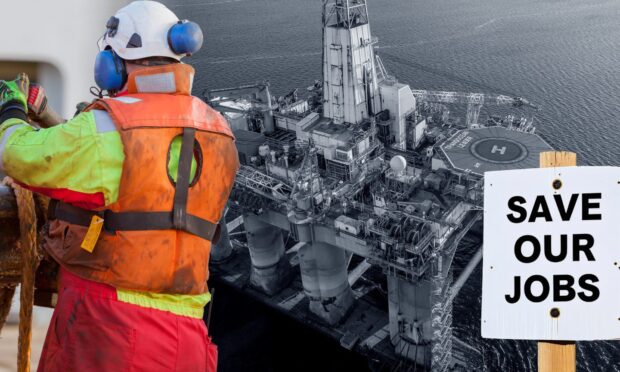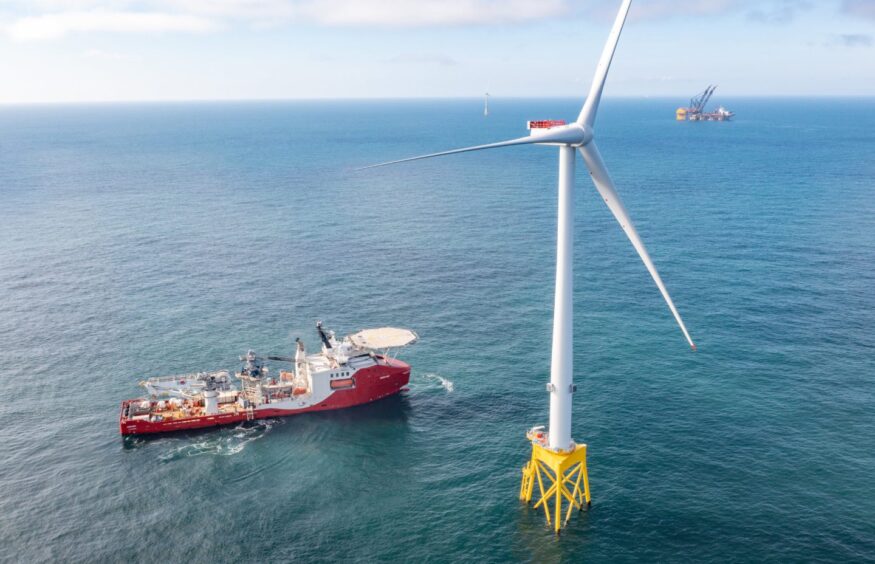The next UK Government will have just 100 days to save 100,000 jobs in the North Sea energy sector, Aberdeen and Grampian Chamber of Commerce (AGCC) warns in a new report.
Its 39th Energy Transition survey findings show there has been a sharp decline in work across production, exploration and renewables as investors await the outcome of the general-election.
Industry confidence in UK activities has plunged to a record low, the chamber says.
High taxes and a potential exploration ban are threatening to “bring our world class domestic oil and gas industry to a premature end”, it adds.
We believe the next government has just 100 days to convince industry that there is a future in the UK continental shelf.” Russell Borthwick, Aberdeen and Grampian Chamber of Commerce
Investment bank Stifel has previously warned any increases to UK windfall tax and removal of incentive allowances will mean the loss of jobs and skills in the North Sea.
Stifel said employee numbers could plummet from 200,000 to 100,000 between now and 2029.
AGCC’s new report says the party which wins the election has 100 days to restore confidence – or face losing investment worth £30 billion.
The chamber is also making fresh calls for an independent body, free from political influence, to oversee the energy transition.
It says this should be responsible for developing recommendations which command cross-party consensus and help insulate the industry from policy shocks in the future.
The chamber’s report also calls for a “relentless focus” on renewable energy job creation, echoing calls from union Unite for major investment to create jobs in wind power manufacturing and operations, hydrogen, carbon capture and decommissioning.
Launching the document at a business breakfast in Aberdeen this morning, AGCC chief executive Russell Borthwick said: “The Energy Transition survey has charted the highs and lows of the UK’s energy sector for the past 20 years.
“But never before have its findings been so important and the need for action so urgent.
“From our survey and listening to focus groups, we believe the next government has just 100 days to convince industry that there is a future in the UK continental shelf.
North Sea ‘apathy’ may quickly turn to ‘open revolt’, chamber chief warns
“Failure to do so will result in the current apathy, which is evident throughout this report, turning to open revolt, where companies move their resources on to countries which offer a less hostile business environment and better returns.
“Privately, industry leaders are being very clear that this will be the outcome of an extended windfall tax, with scaled-back allowances.
“Should this transpire, our path to net-zero could look more like a road to nowhere.
“A road that leaves the UK poorer, less energy secure, and beholden to foreign regimes for the energy we need to keep the lights on and our economy running.”
Mr Borthwick added: “To set a different path – one where the UK seizes the huge economic opportunities of the energy transition – requires a diversity of thought and approach.
“We need a new body, free of political interference, to make the right decisions for the long-term future of our energy sector. I thought that was important before. I now believe it is essential.”
The report is jointly sponsored by ETZ Ltd, the not-for-profit firm driving forward plans for an Energy Transition Zone in Aberdeen, and professional services firm KPMG.
Whoever comes to power must see the transition as an unprecedented opportunity to support decarbonisation.” Maggie McGinlay, ETZ Ltd
ETZ Ltd chief executive Maggie McGinlay said the survey findings underline the need for “stable policy signals”, so investors can “get on with the business” of energy transition”.
She added: “What is reassuring, however, is there is clearly still a strong appetite across our industry base to accelerate transition.
“As we approach a general-election I would urge political debate to focus on the need for a joined-up industrial plan recognising the lasting, vital role the energy industry plays.
“Whoever comes to power must see the transition as an unprecedented opportunity to support decarbonisation, and lasting industrial and jobs benefits to communities across the north-east, Scotland and the wider UK.”
Paula Holland, office senior partner for KPMG in Aberdeen, said: “It is quite clear that political instability in an election year, ever changing tax policy, and uncertainty in the market understandably weigh very heavily on the minds of those who responded, outstripping concerns over the oil price for the first time.
“This difficult climate is seen as a significant barrier to the speed of UK diversification to renewables and other low carbon sources of energy, something which is closely tied to the investment decisions being made in this region every day.
“The findings show that the majority of companies remain optimistic about the long-term future of Aberdeen and its place on the world stage as a major energy hub.
“Overall, it’s clear that everyone just wants to know which way the wind will blow.”
A total of 107 businesses, including 12 UK North Sea operators and 95 contractors/service companies, collectively employing more than 46,000 people in Britain, completed the survey. The report can be found online via AGCC’s website.
Survey findings include:
- Companies expect only around half of their work (51%) to be in renewables by 2030, up from 34% currently, although headwinds remain.
- Despite oil prices above $80 a barrel, confidence among companies working in the UK North Sea is now lower than it was during either the financial crash or Covid pandemic. During Covid, oil prices slumped to around $16 a barrel.
- Tax, political environment and market stability are the three biggest concerns facing companies based in the UK energy sector.
- UK-based companies are increasingly focusing their investment and resources in overseas projects and markets.
- Profitability and the regulatory environment are listed as the biggest barriers to diversification into renewable energy.
- More than two-thirds of energy sector companies (67%) believe that none of the UK’s political parties are putting forward the correct strategy for energy transition.
- All companies are facing acute recruitment challenges, with half of firms losing more people than usual to retirement. One-third are losing more staff than usual to overseas projects.







Conversation